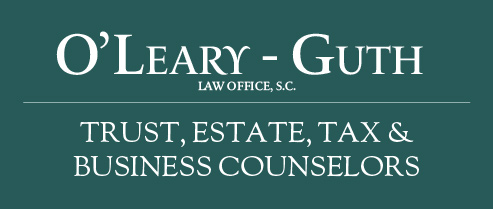Do you Qualify as a Prudent Investor?
Posted: May 17, 2019
- Trustees who undertake the responsibility of managing trust investments may be liable for portfolio losses to the trust beneficiaries if they fail to abide by the tenants of Modern Portfolio Theory (MPT).
- As a result, trustees should adopt a rules-based investment approach that relies on academically supported principles to tactically adapt investment portfolios to reflect changes in economic and market conditions.
- For many non-professional trustees it is more prudent to delegate the responsibility for investment management to a professional portfolio manager whose management style is consistent with the principles of MPT.
The prudent heir takes careful inventory of his legacies and gives a faithful accounting to those whom he owes an obligation of trust.
– John F. Kennedy
John McLean died on October 23, 1823. John’s will left $35,000, personal property and a house to his wife, Ann. He also left $50,000 in trust for her benefit. John’s will directed that the trust’s income was to be paid to Ann, in quarterly or semi-annual payments. On Ann’s death, the fund was to be split evenly between Harvard College and Massachusetts General Hospital.
Jonathan and Francis Amory were appointed as trustees. Francis predeceased John, and when John resigned as Trustee in 1828, Harvard College and the Massachusetts General Hospital sued him, seeking to recover losses realized on investments that he and Francis had made on behalf of the trust. Specifically, the College and the Hospital alleged that this choice of investments was speculative and negligent, and were made in an effort to generate excessive income for Ann, without regard to interests of the charitable remainder beneficiaries.
The probate court found in John’s favor, and the charitable beneficiaries appealed. The Supreme Judicial Court of Massachusetts affirmed the decision of the probate court. Justice Samuel Putnam wrote the Appellate Court’s opinion, stating:
“All that can be required of a trustee is …to observe how men of prudence, discretion and intelligence manage their own affairs, not in regard to speculation, but in regard to the permanent disposition of their funds, considering the probable income as well as the probable safety of the capital to be invested.”
Justice Samuel Putnam, Harvard College v Amory (1830) 26 Mass (9 Pick) 446, 461
This historic decision established a precedent known as the “Prudent Man Rule” that was followed by courts throughout the U.S. and elsewhere when evaluating a trustee’s investment decisions.
In 1992, the Third Restatement of the Law of Trusts (Restatement) proposed that the Prudent Man Rule be replaced by the Uniform Prudent Investor Act (UPIA). Most significantly, UPIA adopts Modern Portfolio Theory (MPT) as the basis for assessing whether a trustee has invested trust assets prudently. The comments to the Restatement indicate the reason for doing so was “to update trust investment law in recognition of the alterations that have occurred in investment practice. These changes have occurred under the influence of a large and broadly accepted body of empirical and theoretical knowledge about the behavior of capital markets, often described as Modern Portfolio Theory”.
Under the common law Prudent Man Rule, the merits of each investment by a trust are to be evaluated independently. By comparison, UPIA obligates trustees to consider a trust’s investments collectively, not individually. UPIA also requires trustees to consider not just a particular investment potential return, but also the impact a particular investment will have on a portfolio’s overall risk.
Accordingly, trustees should avoid stock picking, market timing and the like when managing trust assets. Instead, trustees should adopt a rules-based investment approach that relies on academic research and theory to tactically adapt investment portfolios to reflect changes in economic and market conditions.
Fortunately, unlike the common law, modern trust law supports a trustee’s decision to delegate investment responsibility to investment advisors (like The Milwaukee Company) with the requisite knowledge and skill to comply with the UPIA. UPIA relieves a trustee who delegates investment management functions to a professional portfolio manager from liability for a trust portfolio’s performance, provided the trustee exercises reasonable care, skill and caution when:
1) Selecting the agent
2) Establishing the scope and terms of the agent’s engagement
3) Reviewing the agent’s and performance
Trustees who opt to engage a trust investment advisor would also be prudent to require the trust investment advisors to commit to manage trust investments in a manner that is consistent with the UPIA in their investment management agreements. As Robert Duvall demonstrated in the 2007 movie “Lucky You”, it can pay to be prudent.
Thank you for reading. If you enjoyed this article, please consider subscribing to my weekly Market Commentator blog. You can do so by CLICKING THIS LINK.
Andrew J. Willms, JD, LL.M.
Schedule an appointment with us today.
Meet with a knowledgeable attorney who specializes in your area of law.
1251 W. Glen Oaks Lane, Mequon, WI 53092
F: (262) 238-6999
